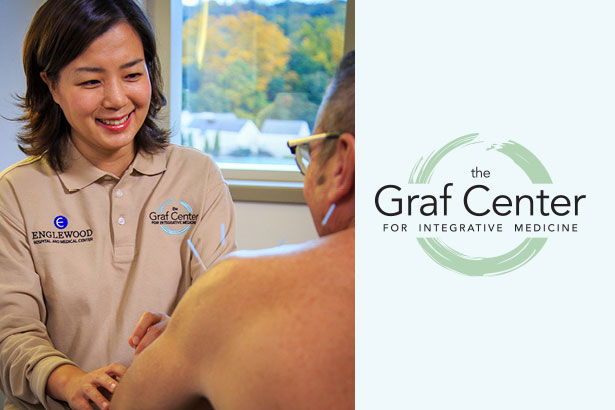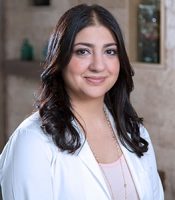
The Graf Center for Integrative Medicine employs acupuncturists, massage therapists, reiki practitioners, yoga teachers, nutritionists and other specialists
Acupuncture. Aromatherapy. Reiki. What do all of these have in common? For one, these treatments were once disregarded as medical therapies. For another, one might not expect to find them being practiced in an oncology suite. But as evidence of the effectiveness of these treatments mounts, more progressive and multidisciplinary oncology departments are implementing them in their practices and calling the result “integrative medicine.”

Patients have shown interest in integrative medicine for a long time, said Despina Psillides, MD, medical director of the Graf Center for Integrative Medicine at Englewood Hospital and Medical Center. What is new is the acceptance of these alternative treatment modalities by mainstream medicine.
“In the past, even in the beginning of my training, there was a lot of resistance to integrative medicine,” Dr. Psillides said. “What started to happen was more and more studies came out showing efficacy, more and more patients started responding, and things started changing.”
At the Graf Center, Dr. Psillides and her colleagues take standard internal medicine approaches to treat oncology patients and supplement them with alternative modalities when appropriate.
“Say a patient with cancer is having a lot of side effects from their chemotherapy, and the oncologist has decided to stop treatment due to the side effects,” Dr. Psillides said. “If we can improve those side effects with an alternative modality, then the patient can go on and complete the treatment. We can really make a difference in that way.”
With cancer patients especially, integrative approaches can help with quality-of-life issues, Dr. Psillides said. When a patient receives treatment for their disease, integrative treatments such as acupuncture can help relieve their emotional stress. Dr. Psillides, who studied acupuncture at Harvard University, said it has been shown to effectively treat chemotherapy-related nausea, arthritis and dry mouth, a significant issue for patients with head and neck cancer.
In addition to acupuncture, the Graf Center also employs massage therapists, Reiki practitioners, yoga teachers, nutritionists and other specialists to provide what Dr. Psillides described as “a truly multidisciplinary form of care” when combined with the work of her colleagues at the cancer center. “It’s a testament to patient demand and the medical community’s openness to complementary modalities,” she said.
The availability of the integrative approach in a safe and monitored setting can also prevent cancer patients from seeking out alternative treatments on their own, which can involve trusting questionable sources of information or taking supplements that may interfere with their chemotherapy, Dr. Psillides said. “At the Graf Center, we can focus on the educational aspect—we can guide patients on what is safe or not safe. That kind of guidance isn’t always readily available.”
When they aren’t treating patients, Dr. Psillides and her colleagues are staying up-to-date on the latest research and finding ways to contribute to advancing the field. Currently, they are seeking approval to conduct a study examining the efficacy of aromatherapy in treating chemotherapy-induced nausea.
Dr. Psillides said her aim is to focus on the whole person when treating patients. “It’s not just about the underlying disease; it’s about the appropriate treatment, the appropriate diet, stress relief and overall quality of life,” she said. “That’s really our goal here, and the fact that we’re able to provide it is wonderful, and it’s new, and I believe it’s really the future of medicine.”
Posted March 2017
The Graf Center for Integrative Medicine employs acupuncturists, massage therapists, reiki practitioners, yoga teachers, nutritionists and other specialists
